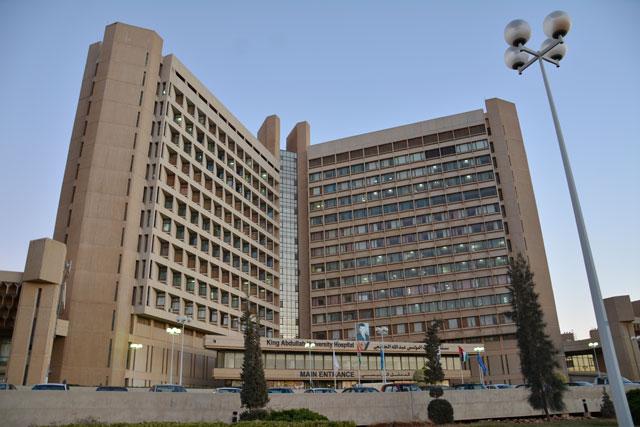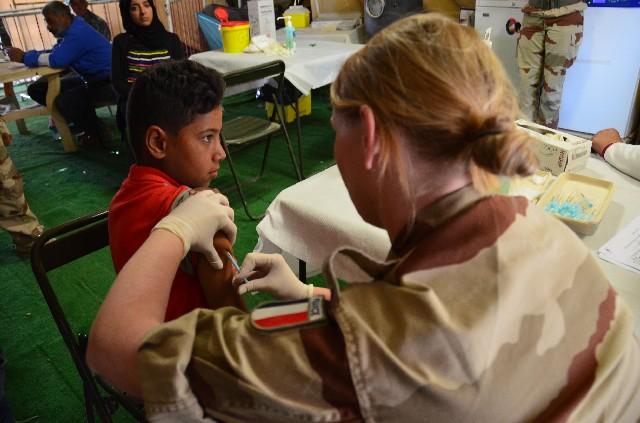You are here
‘Public healthcare services to Syrian refugees costing Jordan JD271m annually’
By Dana Al Emam - Dec 19,2016 - Last updated at Dec 19,2016

King Abdullah I University Hospital in Irbid, 80km north of Amman, is among the hospitals receiving Syrian refugees (Photo by Amjad Ghsoun)
AMMAN — The annual cost of providing healthcare services to Syrian refugees at public facilities is around JD271 million, a figure that is expected to increase in 2017 and onward in light of growing needs, an official said on Sunday.
The figure increased in 2016 due to the growing demand for healthcare services, as well as other factors that include an increase in prices of medications, the Health Ministry’s spokesperson, Hatem Azruie, told The Jordan Times over the phone.
The overall cost of provided healthcare services reached nearly JD1.5 billion since the breakout of the refugee crisis, he noted.
Since the beginning of the influx of refugees in 2012 until August this year, around 630,000 Syrian refugees have visited the ministry’s hospitals, with around 59,000 hospital admissions, while visits to healthcare centres across the country were around 11 million.
Around 14,000 operations were performed to refugees at the ministry’s hospitals, most of which were major operations that dealt with war injuries, according to Azruie.
These admissions and visits have increased occupancy rates in hospitals, as well as the consumption of medical and non-medical supplies and the need for staff and medications.
The spokesperson said the ministry is keen on providing refugees with the needed vaccinations listed in the national vaccination programme, as well as polio and measles vaccinations, as these two diseases have appeared among Syrians refugees.
Vaccination shots given to Syrian refugees exceeded 1.54 million since the crisis started, Azruie said.
While the ministry provides these services across the country, especially in northern areas with intensified presence of refugees, it is also important that Jordan sustains the level of services and healthcare indicators that have been accomplished over the past years, he added.
To mitigate this pressure, the ministry has increased hiring of staff to “unprecedented” levels, carried out infrastructure maintenance to several facilities, increased and maintained healthcare equipment and increased purchases of medications, the official noted.
“International assistance does not rise to the challenges we are facing on the ground,” he highlighted.
According to the Jordan Response Plan, donors’ support to the health sector in 2016 reached around $81 million to support refugees and the resilience of local host communities, without any support to the budget for the sector.
Updated figures show that donors have so far committed to $1.056 billion out of the $2.657 billion funding requirements for 2016, around 39.75 per cent.
A total of 655,404 Syrians in Jordan are registered with the UNHCR as refugees, while official figures put the number of Syrians in the Kingdom at around 1.4 million.
Related Articles
AMMAN — The public health sector annually incurs JD271 million as a result of the Syrian refugee burden on the Kingdom, Health Ministry Spok
Nine out of 10 Syrian refugee households in Jordan have at least one family member with a medical condition, including chronic diseases, conflict-related injuries and psychological problems, according to a recent assessment.
AMMAN — Syrian refugees have increased the occupancy ratio at public hospitals, while the ratio of prescriptions has increased by no less th














